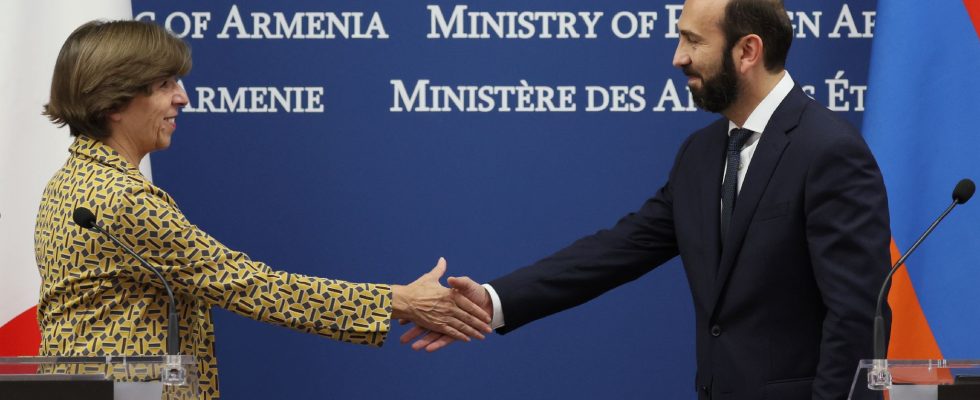Convictions, but no sanctions for the moment. Baku’s offensive against Nagorno-Karabakh, an Armenian enclave in Azerbaijan, has caused a stir but has not yet had any consequences on commercial relations between Europe and the aggressor country. In France, certain political leaders are nevertheless taking action. Catherine Colonna, head of French diplomacy, was in Yerevan on Tuesday October 3 to assure Armenia of Paris’ support. For her part, the President of the National Assembly, Yaël Braun-Pivet, denounced on RTL the same day an “ethnic cleansing” in Nagorno-Karabakh and said she was in favor of the application of economic sanctions, which could also “directly targeting the Aliev family.” A response that is all the more possible given that “Azerbaijan’s place among the EU’s trading partners is marginal”, recalls Diana Karachanski, economist at Coface.
L’Express: What are the economic ties between the European Union and Azerbaijan?
Diana Karachanski: The European Union is an important partner for Azerbaijan. In 2022, 66% of the country’s exports went to European Union states, with Italy alone accounting for 46%. The weight of other Member States is very minimal since Azerbaijan’s second European partner is Greece (less than 4% of exports). These are mainly gas and oil which represent 90% of Azerbaijani exports. The country’s economy is based on hydrocarbons, structurally, and this is not about to change. On the import side, 16% comes from the EU: mainly machinery and transport equipment, chemicals and agricultural products.
How have relations between Azerbaijan and Russia evolved since the war in Ukraine ?
Azerbaijan, 19% of whose imports come from Russia, has said it wants to reduce its energy dependence following the war in Ukraine. Nevertheless, in November 2022, a natural gas delivery agreement was signed between Gazprom and the Azerbaijani national gas company SOCAR. We can assume that this is Azerbaijan’s desire to be able to ensure its own gas exports to other countries, notably the EU.
Are the latest events likely to modify trade with Europe?
In July 2022, Ursula von der Leyen affirmed that Azerbaijan was an important trading partner for the European Union. A memorandum of understanding had been signed for the country to double its natural gas exports to the EU by 2027. From a technical point of view, however, it is not clear whether this is feasible. To do this, it would be necessary to increase both the country’s gas production and the transport capacities of the three gas pipelines which connect Azerbaijan to the EU. From a political point of view, there are no sanctions, for the moment, against Azerbaijan. The European Union and some member states have condemned the attack on Nagorno-Karabakh, but it stops there, despite Armenia’s efforts to push the EU to apply sanctions (Editor’s note: the European Parliament has however pronounced this Thursday, October 5 in favor of “targeted” sanctions against Baku, denouncing in a text voted by a very large majority, an “ethnic cleansing” in Nagorno-Karabakh).
However, note that the issue for Europe is marginal: the EU’s 32nd partner, Azerbaijan represents 0.6% of its trade. Even today, it buys more gas from Russia than from Azerbaijan. According to Eurostat, in the second quarter of 2023, 13.8% of natural gas (in gaseous state) came from Russia, compared to only 6% from Azerbaijan. In the longer term, if the EU wants to further reduce its dependence on Russian gas and strengthen its ties with Central Asia, this could be a game-changer.
